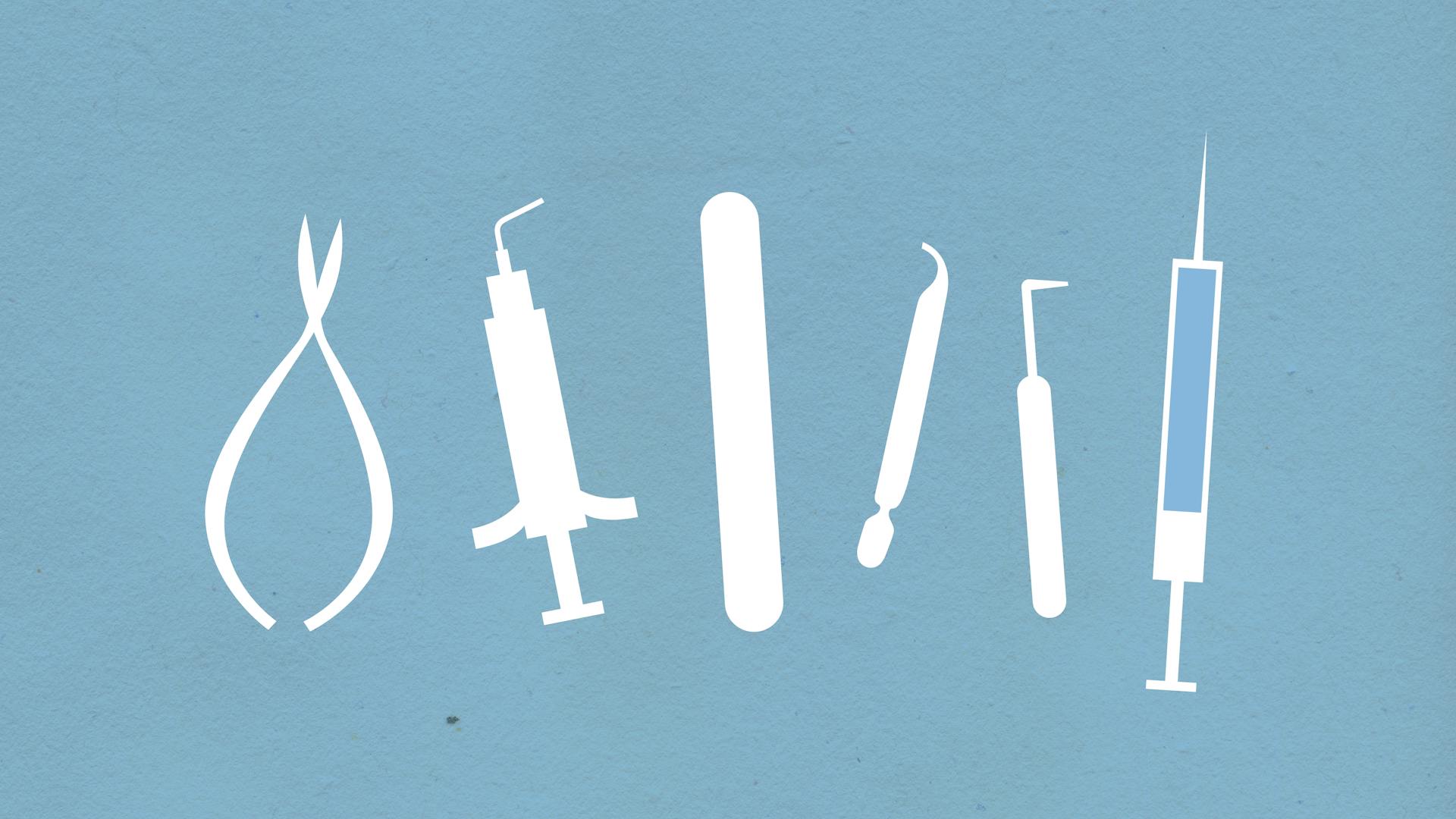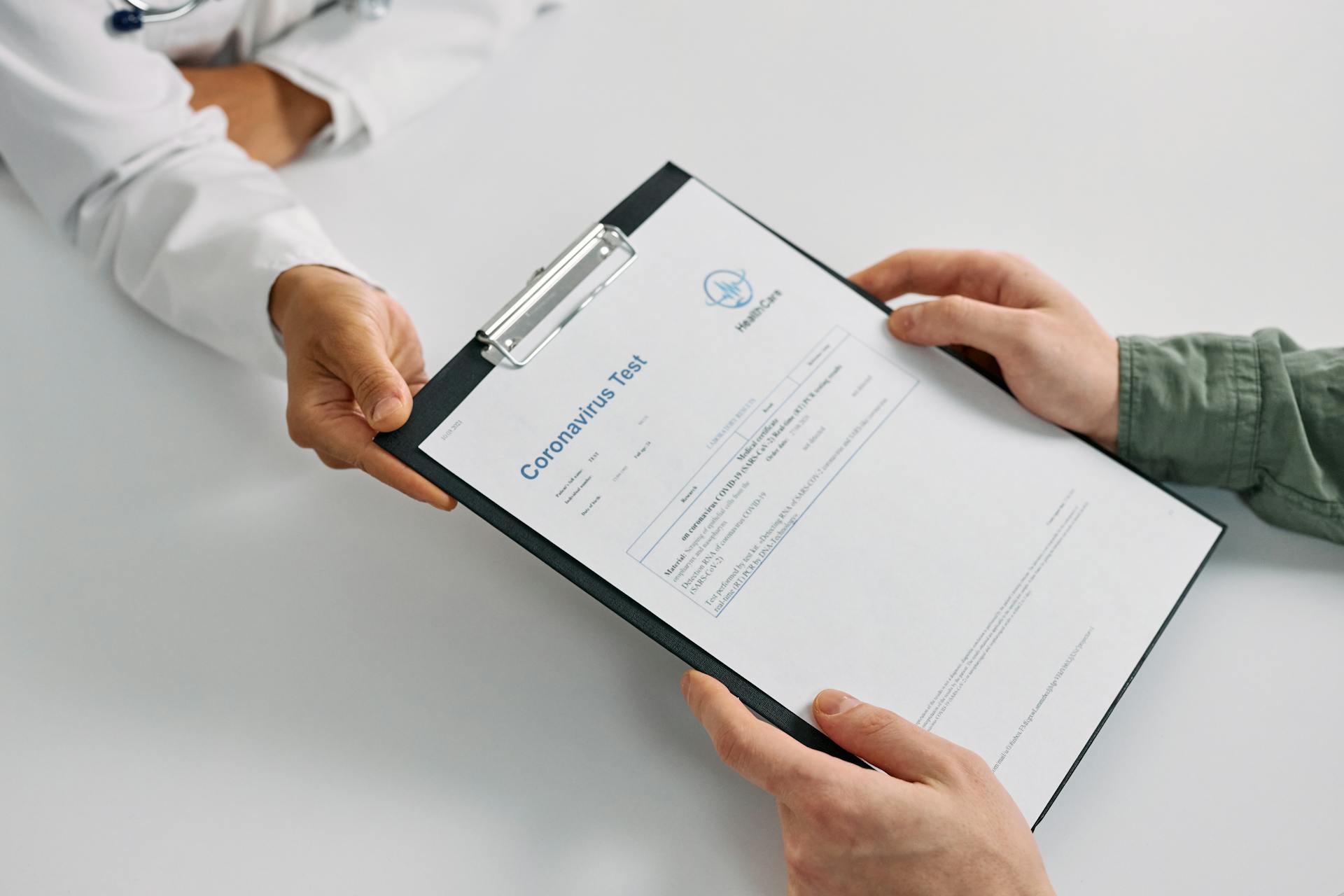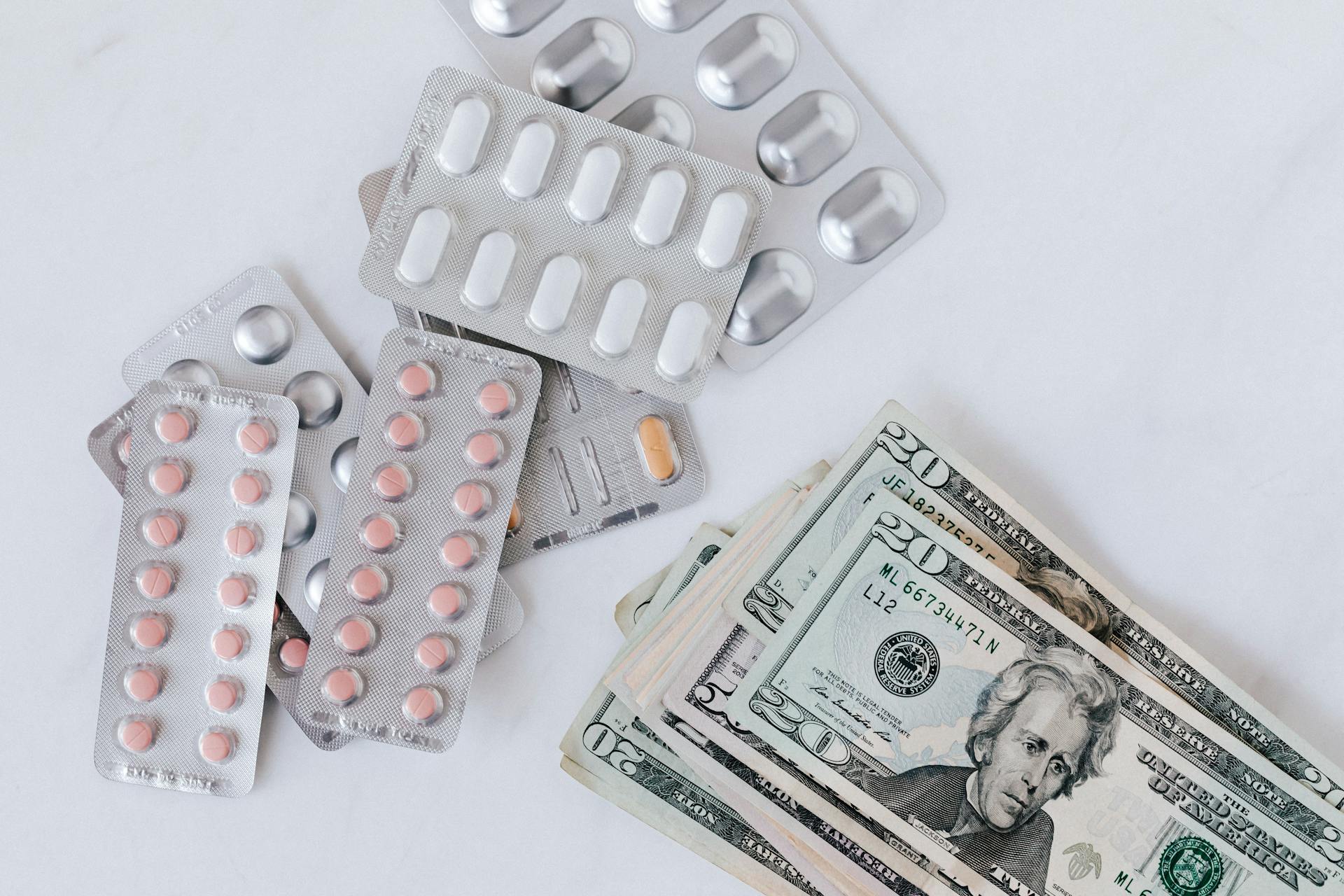
Medical bills can be overwhelming, and the threat of collections can be stressful. According to the Fair Debt Collection Practices Act, medical providers can turn over unpaid bills to collections agencies.
If a medical bill goes to collections, it can significantly impact your credit score. In fact, a collections account can drop your credit score by up to 100 points, making it harder to get approved for loans or credit cards in the future.
You can take steps to prevent medical bills from going to collections. For example, you can negotiate a payment plan with your medical provider or insurance company to make payments more manageable.
Consider reading: Credit Balance in Medical Billing
Understanding Medical Bills
Medical bills can be overwhelming, especially if you're not sure what you're paying for. A medical bill typically includes charges for services rendered, such as doctor visits, hospital stays, and procedures.
The average medical bill can range from a few hundred to tens of thousands of dollars, depending on the type of service and the provider. For example, a routine doctor visit might cost around $100, while a hospital stay can cost upwards of $10,000.
It's essential to review your medical bill carefully to ensure accuracy. A study found that 80% of medical bills contain errors, which can lead to overpayment or financial hardship.
Check this out: Medical Payment Plan
Managing Medical Debt

You can avoid collections by being proactive and treating medical bills like any other debt: honestly and responsibly. This means making sure you understand the charges on your medical bill and asking questions if you're unsure.
To get control of medical bills, make the effort to understand the charges, including what your insurance company will cover and what you're expected to pay. Check for double billing or unauthorized charges.
It's best to negotiate with the medical office or hospital before treatment, but you can also try to negotiate later. Ask about hardship plans, which may qualify you for reductions in the cost of treatment based on your income or debt level.
If you qualify, you might be able to have part or all of your debt forgiven through financial assistance or charity care. Nonprofit hospitals are required by law to offer these options, but some for-profit medical providers may also offer them.
You might like: How to Negotiate Medical Bills in Collections

You can also look into payment plan alternatives, which can make your monthly bills more manageable at a lower interest rate or over a longer term. Some hospitals or medical providers will work with you to set up a payment plan.
Here are some steps to take when dealing with medical debt:
- Understand the charges on your medical bill
- Ask about hardship plans and financial assistance
- Look into payment plan alternatives
- Consider using a medical credit card with a 0% APR
- Find an advocate to help with billing and payment options
Paying off medical collections can improve your credit scores by removing the account from your credit reports. This can have an immediate positive impact on your credit, especially if the account was over $500.
On a similar theme: Can You Pay Medical Bills with a Credit Card
Consumer Protection and Action
The Consumer Financial Protection Bureau (CFPB) is taking steps to protect consumers from unfair medical billing practices. In September 2023, the CFPB announced new rule proposals aimed at stopping hospitals and medical providers from using credit reporting to pressure patients into paying charges they can't afford.
Credit bureaus have made voluntary moves to reduce the number of bills on consumers' credit reports, but the CFPB proposal would make these changes mandatory. Many creditors still use older reporting models that haven't adopted these changes.

The CFPB proposal would ensure that credit decisions are based on a person's ability to repay a debt, not their ability to file disputes and navigate red tape. This would provide peace of mind to millions of Americans who won't be forced to battle errors and junk data on their credit report when they get sick.
Bill Forgiveness
If you're struggling to pay medical bills, you may be able to seek forgiveness through your provider. This requires a verifiable hardship, such as a disability that prevents you from working.
You'll need to provide proof, like tax returns and written documentation, to show you have no means to pay. This can be a challenging process, but it's worth exploring.
Nonprofit organizations like the PAN Foundation and CancerCare may also be able to help with your medical bills. They offer financial assistance to those in need.
Using a credit card for medical debt should be a last resort, as it can lead to further financial difficulties.
Consumer Protection Action

In September 2023, the Consumer Financial Protection Bureau (CFPB) director Rohit Chopra announced new rule proposals to stop hospitals and medical providers from using credit reporting to pressure patients into paying charges they can't afford.
The CFPB proposal would make changes to credit reporting mandatory, ensuring that credit decisions are based on someone's ability to repay a debt, not their ability to file disputes and navigate red tape.
Many creditors still use older reporting models that haven't adopted recent voluntary changes by the three major credit bureaus to reduce the number of bills on consumers' credit reports.
Bills that have been turned over to collection agencies often don't match the records from the healthcare providers' billing or include updates involving insurance adjustments or financial assistance.
The CFPB proposal would ensure that credit decisions are fair and accurate, providing peace of mind to millions of Americans who won't be forced to battle errors and junk data on their credit report when they get sick.
A grace period of at least a year after the date an account becomes late and is not brought current gives individuals with medical debt time to resolve insurance or billing issues and make payment arrangements before the past-due balance is reported.
You should contact the creditor as soon as you receive a medical bill to begin rectifying any issues, even if you think the bill might be incorrect.
Using a medical debt consolidation loan can combine multiple medical debts into a single account, allowing you to make one monthly payment instead of multiple payments to different creditors or collection agencies.
Suggestion: How Long before Debt Collectors Give up
Rebuilding Your Credit
Paying off medical debt is the first step to rebuilding your credit after medical collections. It's a good idea to pay off any other past-due debts as well, including credit card debt, to avoid further damage to your credit score.
Paying all your debts on time is crucial, as it makes up 35% of your credit score. Consistently positive payment history on all your accounts will help your scores rebound over time.
Additional reading: How You Can Get Help Paying Medical Bills in Minnesota

Your credit utilization ratio is another important factor in your credit score, and paying down your credit card balances can help improve it. Aim to keep your credit utilization ratio low by paying your credit card balances in full each month.
Here are the steps to rebuild your credit after medical collections:
- Pay off any past-due debts, including medical collection accounts
- Make all your payments on time going forward
- Pay down your credit card balances to keep your credit utilization ratio low
- Consider signing up for Experian Boost to get credit for your on-time utility, cellphone, and streaming service payments
Next Steps and Resources
If you're facing a medical bill that's heading to collections, don't worry, there are options available to help you manage the situation.
You can try negotiating your medical bills with your healthcare provider, who may offer substantial discounts if you agree to pay a lower amount in full or make a large down payment.
Working out a repayment plan with your healthcare provider can also be a viable option, but be aware that any interest or fees charged will add to the cost of the original bill.
If you're not comfortable negotiating with your provider or need professional help, consider hiring a medical billing advocate, who can save you thousands of dollars and hours of time on the phone with insurers and provider offices.
On a similar theme: Help with Medical Bills in Michigan
You may also be eligible for financial assistance from Medicaid, local or state programs, religious groups or nonprofit organizations, and charities, depending on your income.
If all else fails, you can consider using a personal loan or credit card, but be aware that you'll incur interest on the amount you borrow or charge, and make sure to pay off the debt before the higher rate kicks in.
Here are some resources to consider:
- Medical billing advocates can be found through organizations like the Medical Billing Advocates of America or the National Association of Medical Billers.
- Nonprofit organizations like the HealthWell Foundation or the Patient Access Network Foundation offer financial assistance for medical bills.
- Local and state programs may be available through your government's website or by contacting your local social services office.
Payment Options and Strategies
Paying off medical debt can be overwhelming, but there are ways to make it more manageable. To avoid collections, you should be proactive and treat your medical bills like any other debt – honestly and responsibly.
You can start by making sure you understand the charges on your medical bill. Check if you've been double billed or if the statement includes any unauthorized charges. If you're unsure, ask questions!
Negotiating with your medical provider can also help. Ask about hardship plans, which might qualify you for reductions in the cost of your treatment. You can also inquire about financial assistance or charity care, which some hospitals and medical providers offer.
Explore further: Medical Debt Consolidation
If you're struggling to pay your medical bills, look into payment plan alternatives. Many hospitals and medical providers will work with you to make your monthly bills more manageable at a lower interest rate or over a longer term.
Here are some payment options to consider:
- Medical credit cards: These usually come with a 0% annual percentage rate (APR) over a term of 6 months to 2 years.
- Payment plans: Your medical provider might offer a payment plan with a lower interest rate or over a longer term.
- Financial assistance or charity care: If you qualify, part or all of your debt might be forgiven.
- Hardship plans: Your income and/or debt level might qualify you for reductions in the cost of your treatment.
Remember, paying off medical debt takes time and effort, but it's worth it to avoid collections and protect your credit score.
Impact on You
Medical bills can have a significant impact on your credit scores, but the extent of the damage depends on the amount owed and how long it remains unpaid. An unpaid medical collection account over $500 can almost certainly have a negative impact on your credit scores.
If you're unable to come to an agreement with the provider and they sell your debt to a collection agency, the unpaid collection account can remain part of your credit history for seven years from the original delinquency date.
For your interest: Consequences of Unpaid Medical Bills
Medical collections under $500 do not appear on your credit report and will not affect your credit scores. This is a relief for those with smaller medical bills.
Paid medical collection debt is no longer included on credit reports, which is a positive development for those who have already settled their debts.
For your interest: Can You Get in Trouble for Not Paying Medical Bills
What to Do
If you're struggling to pay your medical bills, don't panic. You have options to consider.
You can try negotiating your medical bills with your healthcare provider. They may be willing to offer substantial discounts if you agree to pay a lower amount in full or make a large down payment and then pay the rest over time.
Working out a repayment plan is another option. Your healthcare provider may be willing to break the bill down into monthly payments, but be aware that any interest or fees they charge will add to the cost of the original bill.
If this caught your attention, see: Medical Bill Payment
If you're not comfortable negotiating or setting up a repayment plan, you can hire a medical billing advocate. These professionals work with healthcare providers and insurance companies to help resolve medical bills on behalf of individuals, and can potentially save you thousands of dollars.
You may also be eligible for financial assistance through programs like Medicaid, local or state programs, religious groups, or nonprofit organizations. Check if you qualify.
If all else fails, you can consider using a personal loan or credit card to pay off your medical debt. However, be aware that this should be a last resort, as you'll incur interest on the amount you borrow or charge.
Frequently Asked Questions
What is the law on unpaid medical bills in Washington state?
In Washington state, medical debt can't be sold or assigned for at least 120 days after the initial billing statement is sent. This law aims to protect patients from aggressive debt collection practices.
Can medical bills under $500 be sent to collections?
As of April 2023, credit bureaus no longer report medical debts under $500 to credit reports. However, it's still possible for medical bills under $500 to be sent to collections, but they won't affect your credit score.
Do unpaid medical bills affect your credit?
Unpaid medical bills can indeed impact your credit, but the effect may be limited to debts over $500, as the three major credit bureaus no longer report medical debts under this threshold. However, it's essential to understand the specifics of how medical debt affects credit scores and what you can do to protect your credit.
How much will a debt collector settle for medical bills?
Debt collectors typically settle medical bills for the amount insurance companies pay, which is often significantly lower than the original bill. This can result in substantial savings for individuals with medical debt
What is the law on unpaid medical bills in Georgia?
In Georgia, hospitals can sue for unpaid medical bills, but you have 6 years from your last payment to resolve the debt before they can take further action. This 6-year window is known as the statute of limitations on medical debt.
Sources
- https://www.debt.org/medical/collections/
- https://www.experian.com/blogs/ask-experian/what-happens-when-medical-bills-go-collections/
- https://delcode.delaware.gov/title6/c025j/index.html
- https://cohealthinitiative.org/articles/medical-debt-collections-cchis-deep-dive/
- https://www.experian.com/blogs/ask-experian/medical-debt-and-your-credit-score/
Featured Images: pexels.com


